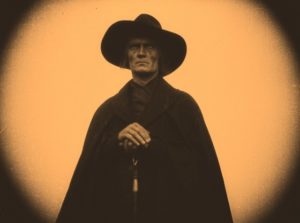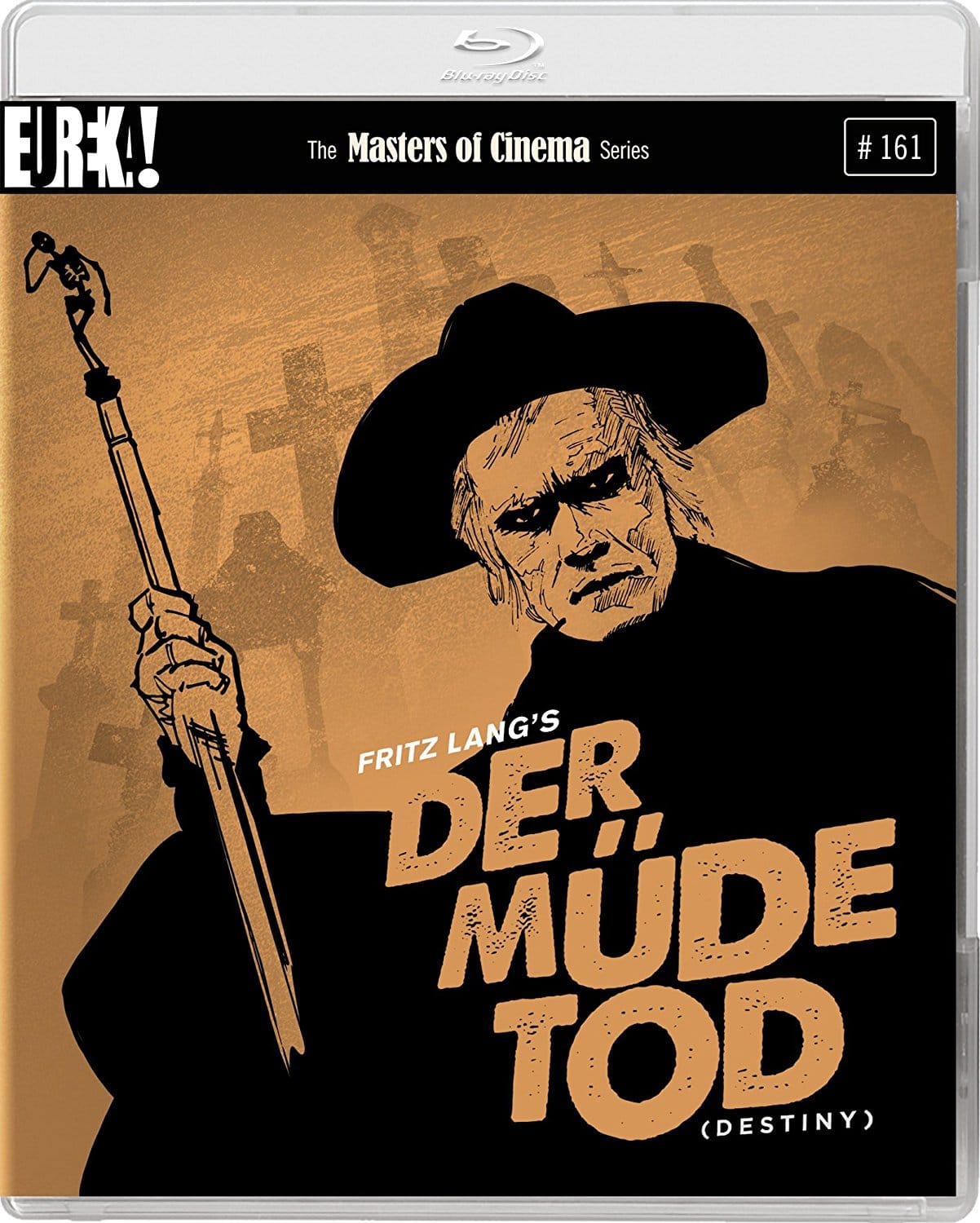I do claim to be quite the fan of silent German cinema, but truth be told I’ve barely scratched the surface, even when it comes to real masters of the time. Even so, I was very excited when Eureka announced their restoration and release of Der Müde Tod, also known as Destiny, an early outing from Fritz Lang, who’d arguably go on to be one of, if not the most famous director from the period. The film is a curious melodrama, wherein a young woman (Lil Dagover) confronts Death (Bernhard Goetzke), who has taken her fiancé (Walter Janssen) from her. Death is sympathetic, and weaves three romantic tragedies for her – set in Persia, Quattrocento Venice and ancient China – with the promise that if she can save the life of just one of the lovers from these stories, he’ll return her fiancé to the world of the living.
Der Müde Tod really is quite a remarkable film. What surprised me most was how outright funny it was – as much as I love silent German cinema I can’t say it’s often that these films make me really laugh. Despite the film’s overall tone being relatively sombre, the tales woven by Death, particularly the final story set in ancient China, have a real playfulness to them. The greatest joy, for me, of this was getting to see Lil Dagover play more than just a damsel in distress, and particularly playing the almost heroic – and hilarious – Tiao Tsien in the third chapter.
 As one might expect from a film of this era, there’s a wonderful use of expressionist imagery throughout, although to me it never seems to be a, strictly speaking, ‘German Expressionist Film’. That said, there are a number of powerhouses behind the scenes in addition to Lang, namely in the form of production designers Hermann Warm and Walter Röhrig, best known, I imagine, for The Cabinet of Dr. Caligari, among many, many other wonderful Expressionist films. There are some quite breath-taking moments of camera trickery involved, too, such as when death summons and vanishes a baby in his hands. The other marker of its era is the near-delightfully out-of-date depictions of other cultures – Persia and Ancient China in particular – that, if put on screen like this today would cause outcry of the first degree.
As one might expect from a film of this era, there’s a wonderful use of expressionist imagery throughout, although to me it never seems to be a, strictly speaking, ‘German Expressionist Film’. That said, there are a number of powerhouses behind the scenes in addition to Lang, namely in the form of production designers Hermann Warm and Walter Röhrig, best known, I imagine, for The Cabinet of Dr. Caligari, among many, many other wonderful Expressionist films. There are some quite breath-taking moments of camera trickery involved, too, such as when death summons and vanishes a baby in his hands. The other marker of its era is the near-delightfully out-of-date depictions of other cultures – Persia and Ancient China in particular – that, if put on screen like this today would cause outcry of the first degree.
Ultimately with a film such as this, if you’re easily bored by silent cinema, then I’m not sure it’s likely to appeal or particularly hold your attention. That said, I can’t help but feel that this is a film that requires a few viewings to get to the meat of what’s being said. The film certainly features visual and narrative elements that places it alongside other arguably anti-authoritarian films of the time, such as Caligari. The mere fact that Death himself is ‘weary’ (as per the title), and presented as sympathetic rather than malicious or frightening, speaks to the cultural context in which this film was made. A particular moment that stuck out to me sees the young woman beg a group of sick, elderly villagers to offer up their own life to save that of her fiancé, and their response is overwhelmingly negative – “Not a day! Not an hour! Not a single breath!”
The accompanying booklet that comes with Eureka’s release of the film features a wealth of fascinating writing, not least of all an essay by Philip Kemp about the film, which features some rather delightful trivia about the film as well as an in-depth history of its release. The set also features a full audio commentary by Tim Lucas and a video essay about the film. All in all, this release is well worth getting if you’re already a fan of Fritz Lang or of German filmmaking of this period, if not, then it’s not likely to win you over, and nor will it serve as an especially easy way into these films. For me, the release of the film is an absolute delight.
Der Müde Tod is available now in dual format DVD and Blu-ray, as part of Eureka Entertainment’s Masters of Cinema series.
